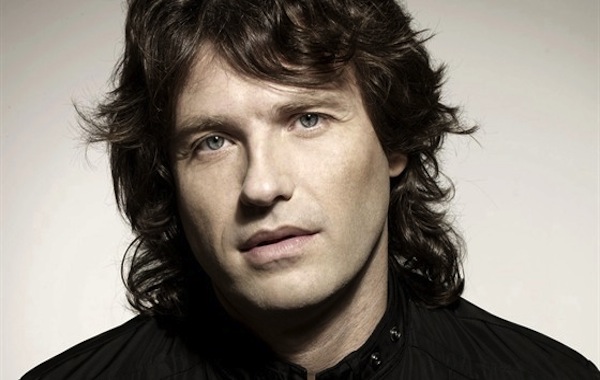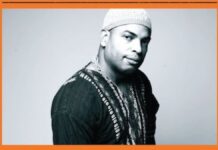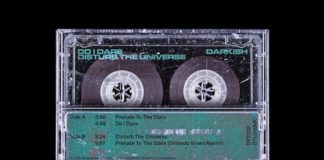In Argentina è una leggenda vivente, le sue serata al Pacha di Buenos Aires sono entrate nella storia della Club Culture. Nel vecchio continente abbiamo dovuto aspettare il 2001 per conoscerlo davvero grazie a Paul Oakenfold, che quell’estate lo fece debuttare su Perfecto con il singolo Deep Funk e pubblicando, nella primavera successiva, la compilation mixata Perfecto Presents: Hernan Cattaneo – South America.
Da allora è stata un’ascesa inarrestabile e, man mano che i pionieri della progressive house cambiavano direzione, Hernan si è affermato con forza come Padrino della scena lavorando in tutte le situazioni più importanti (Creamfield, The Gallery), fondando la propria label (Sudbeat) e diventando un punto fermo per marchi storici come Renaissance, senza contare le sue partecipazioni a eventi particolari come il Burning Man nel deserto del Nevada.
Ai piatti si dimostra un Dj dallo stile raffinato ma vigoroso, che pesca in ogni genere il sound che gli serve per raccontare la sua storia, mentre in studio preferisce accompagnarsi a Soundexile, team produttivo composto da Oliverio Sofia e Pablo Alejandro Carr.
In occasione dell’uscita della nuova compilation Balance a lui affidata, di cui potete leggere qui la nostra recensione, lo abbiamo contattato per quella che a tutti gli effetti è la sua prima intervista su una rivista del Bel Paese.
Ciao Hernan benvenuto su Frequencies, è un piacere averti con noi in questa tua prima intervista italiana.
Quello che ci ha sempre colpito di te è la tua abilità nel gestire le dinamiche del set e il tuo gusto nella selezione, attuale e al tempo stesso classica. Da dove attingi idee e ispirazione?
Ho sempre ascoltato musica sin da quando ero molto piccolo, e ho iniziato a fare il Dj a dodici anni, per questo la musica mi arriva naturalmente come qualsiasi altra cosa della vita. Cercare nuova musica da suonare nei miei show, alla radio o da pubblicare sulla mia label è ciò che io faccio tutto il tempo, tutti i giorni.
Ogni settimana viaggiando intorno al mondo incontro un pubblico meraviglioso, e questa è la mia fonte d’ispirazione più grande perchè voglio dare alla gente sempre il meglio.
I podcast sono molto popolari: prima Metrodance ora Resident. Come mai questi mix online sono così importanti per te? E’ soltanto un modo per diffondere la tua musica o c’è dell’altro?
E’ un ottimo sistema per restare in contatto con i fans, e contemporaneamente dare spazio ai bravi produttori che conosco di volta in volta durante i miei viaggi.
Sudbeat è un’istituzione nel panorama progressive house, ma è comunque aperta ad artisti dagli stili diversi (per esempio Petar Dundov o Warm Hall). Negli anni la scena è cambiata parecchio, cosa vuol dire per te oggi essere progressive? Sei d’accordo col dire che si tratti più di un’attitudine che non di un vero e proprio genere musicale?
Non penso all’etichetta progressive in termini di musica da suonare quanto piuttosto a un modo di proporla. Ho sempre selezionato molti artisti di di diversa estrazione per i miei set, dalla deep house alla techno o alla trance o a qualsiasi altra cosa mi suoni bene. Il segreto è tanto nelle tracce quanto nel modo in cui le programmi e mixi.
Due brani identici daranno effetti differenti a seconda se li mixi con uno stile proggy o in maniera old school techno.
Se guardiamo su Beatport possiamo notare come il tag progressive sia usato senza perizia attaccandolo alla peggior musica mainstream. Cosa ne pensi? Può essere un vero problema?
Come ho detto prima, progressive indica una maniera di suonare e non uno stile musicale, quindi Beatport può usare il termine come vuole. Certo questo avrà un impatto perchè Beatport governa il mercato in diversi modi, ma io non posso andare in giro a spiegare che non suono quella roba.
Attualmente i producer da Israele paiono avere una marcia in più e, ascoltando i tuoi set, devono piacerti molto. Cosa ne pensi e cosa ritieni abbiano effettivamente più degli altri?
Dovresti chiederlo a loro! Ci sono sempre stati ottimi produttori in Israele, come ad esempio Moshic tempo fa, poi certamente Guy Gerber e Guy J, e oggi c’è una grande squadra con Guy Mantzur, Sahar Z, Lonya, Khen, Chicola e molti altri. Ecco loro creano il suono che più mi piace.
Ieri è uscita la compilation Balance 026, cosa rappresenta questo lavoro per te? Ci puoi fare una panoramica di ciò che ascolteremo?
Sono super felice che mi abbiano chiesto di occuparmi di un capitolo della serie, lo desideravo da molti anni. Molti dei miei Dj preferiti fanno già parte della collezione così sono orgoglioso di avere anch’io uno spazio lì in mezzo.
Entrambi i cd sono molto musicali, ricchi di melodie e atmosfere. Il cd 1 è più lento e intenso mentre il cd 2 ha più groove ed è un po’ più veloce ma non troppo. Molti amici hanno collaborato con me aggiungendo mix speciali, ho creato otto tracce con Soundexile ed una con Mantzur.
In tutto questo viaggiare per il mondo, quali sono le tue situazioni preferite?
Troppe per citarle tutte. Il Giappone, la Grecia, l’Argentina ovviamente…ma non è giusto amo motissimi posti in ugual misura.
Dai superclub alla fine degli anni ’90 alla piccola nicchia protetta di oggi, la progressive house è diventata una famiglia: grazie ai social networks i fans si conoscono tra di loro così come anche gli artisti. Ti piace come si sono evolute le cose?
Sono felice che al momento ci sia un buon equilibrio tra tutte le scene. Ci sono stati cinque anni in cui o tutto era o EDM o techno modaiola/deep house ma ora tutte le tribes sono nuovamente in salute ed è una buona cosa per tutti.
Omar Abdel Karim
Traduzione: Federico Spadavecchia
English Version:
Hi Hernan welcome on Frequencies.eu. We’re your big fans and every time we listen to you we appreciate your dynamics and your ability on selection, your sound is always actual but at the same time classic. Where do you get inspiration and ideas?
I’ve been listening to music since I was very very little,and been djing since twelve, so music to me comes naturally as anything in life. Searching for new music to play at my shows, radio or the label is what i do, all the time, every day, every week travelling around the world facing great crowds is the best inspiration you always want to give the best to them.
Your podcast are very popular: first Metrodance now Resident. Why podcast are so important for you? Is just a way to spread your music?
It’s a great way to stay in touch with my fans around the world and also to give air to some good producers that i meet travelling every weekend.
Sudbeat is an institution for progressive house scene, but it has always been open to artists from different styles (for example Petar Dundov or Warm Hall). In years the scene has changed a lot, what’s your idea of being progressive today? Do you agree if we talk about an attitude instead of a particular music style?
The progressive tag is one that i dont really think about in terms of music but a way of playing music in that sense, I always played a different range of artists in my sets, from deep house, to techno to trance or whatever may sound good to me. The secret is as much as in the tracks as in the way you program and mix two same tracks will give a different effect of you mix them on a progressive way or a old school techno way.
Actually producers from Israel seem to have a different gear, and listening to your set it seems you like them very much. How can you explain this and what do you think they have much more than others?
You should ask them! There’s always been great producers in israel, like Moshic long ago, then of course gerber and guy j but now they are a hot team with Guy Mantzur, Sahar Z, Lonya, Khen, Chicola and many more. They make the sound that i like the most.
If we look on Beatport we can see how the word progressive is used without any knowledge tagging the worst mainstream music. How do you explain this? Is this a real problem?
As I said before, progressive means a way of play music not a track style, then beatport can use it the way they want and of course will have an impact because BP rules the market in may ways. but i can not go around explaining that I don’t play that kind of stuff.
Yesterday was released your Balance 026, what is this work for you? Can you give us an overview of what we’re going to listen to?
Super happy with it been wishing to be asked for a balance cd for years many of my fav dj’s been part of this collections and I’m proud to have mine now.
Both cd’s are very musical, full of melodies and atmospheres cd1 is slower and more intense, and cd2 is more groovier and a bit faster, but not too fast many friends worked with me adding some special mixes and i made 8 tracks with Soundexile + 1 with Mantzur.
After all your travelling around the world, which are your favourite situations?
Too many to mention Japan always been a fav, Greece, and of course Argentina but its unfair, I love many other places as well.
From the superclubs at the end of the ’90’s to the little and protected scene of nowdays, progressive house is become quite a family now: thanks to the social networks fans know each other and so the artists. Do like how things evolved?
I’m happy that at the moment theres a good balance between all scenes there´s been five years where everything was or EDM or the trendy Techno/deep house sound but now all “tribes” are healthy again and thats a good thing for everybody.











